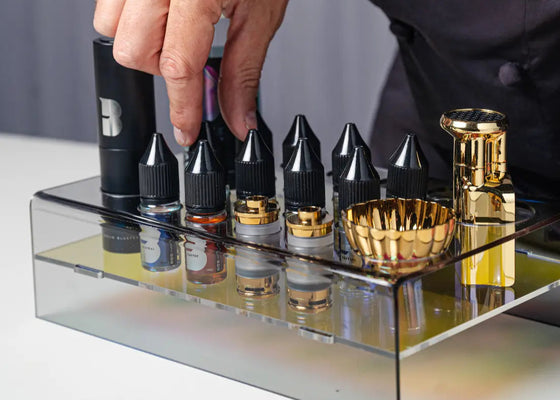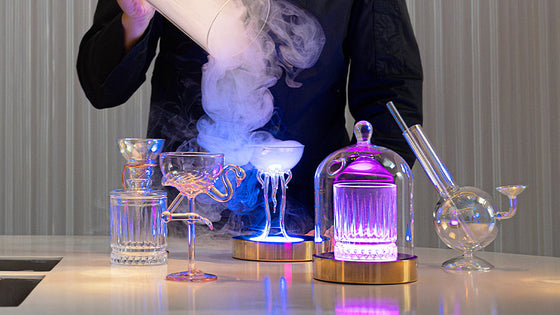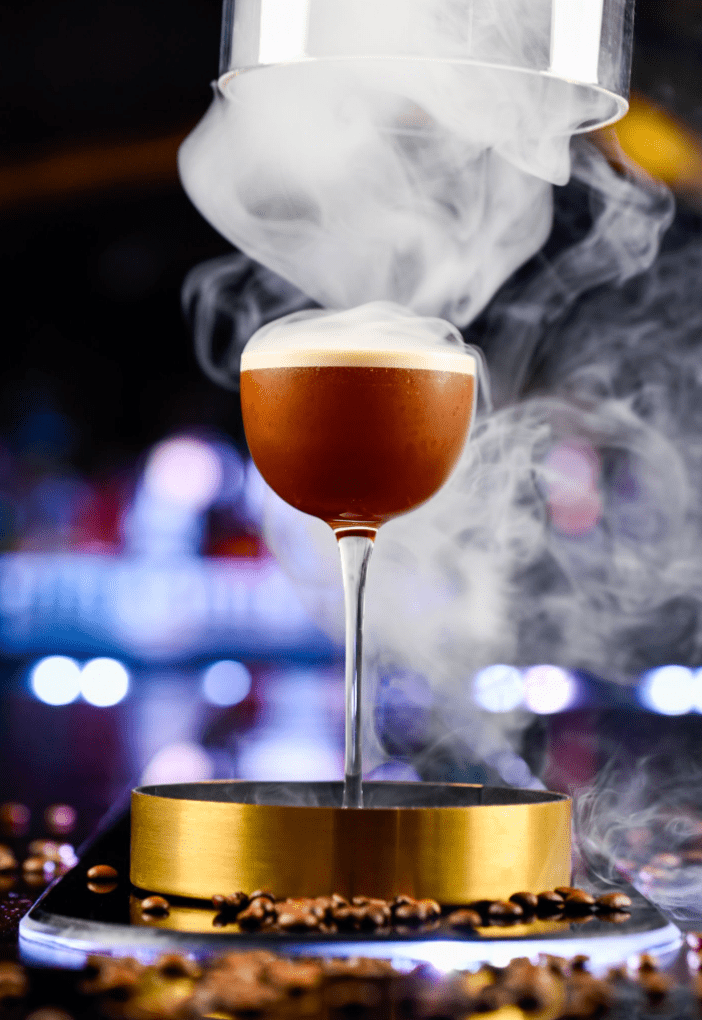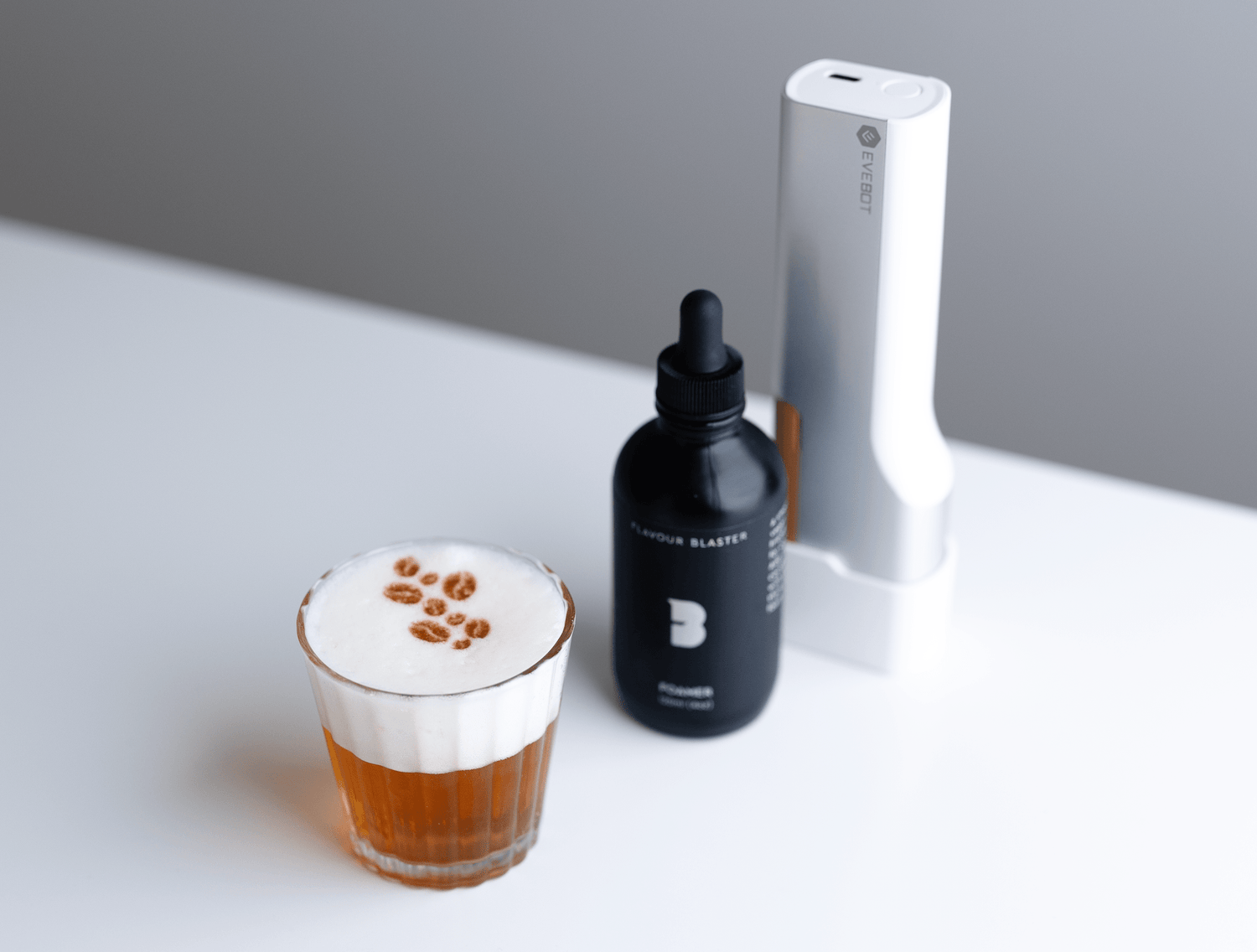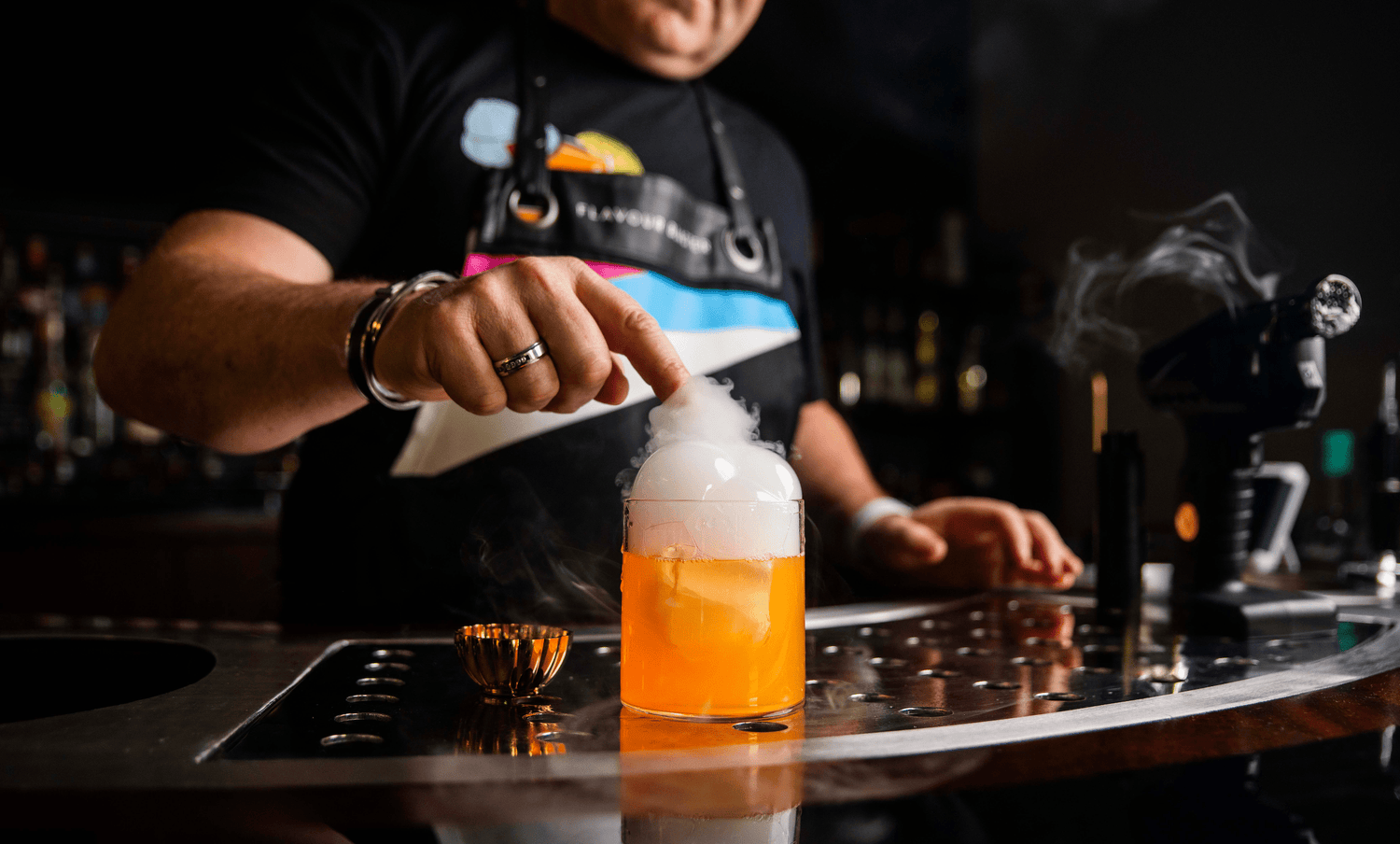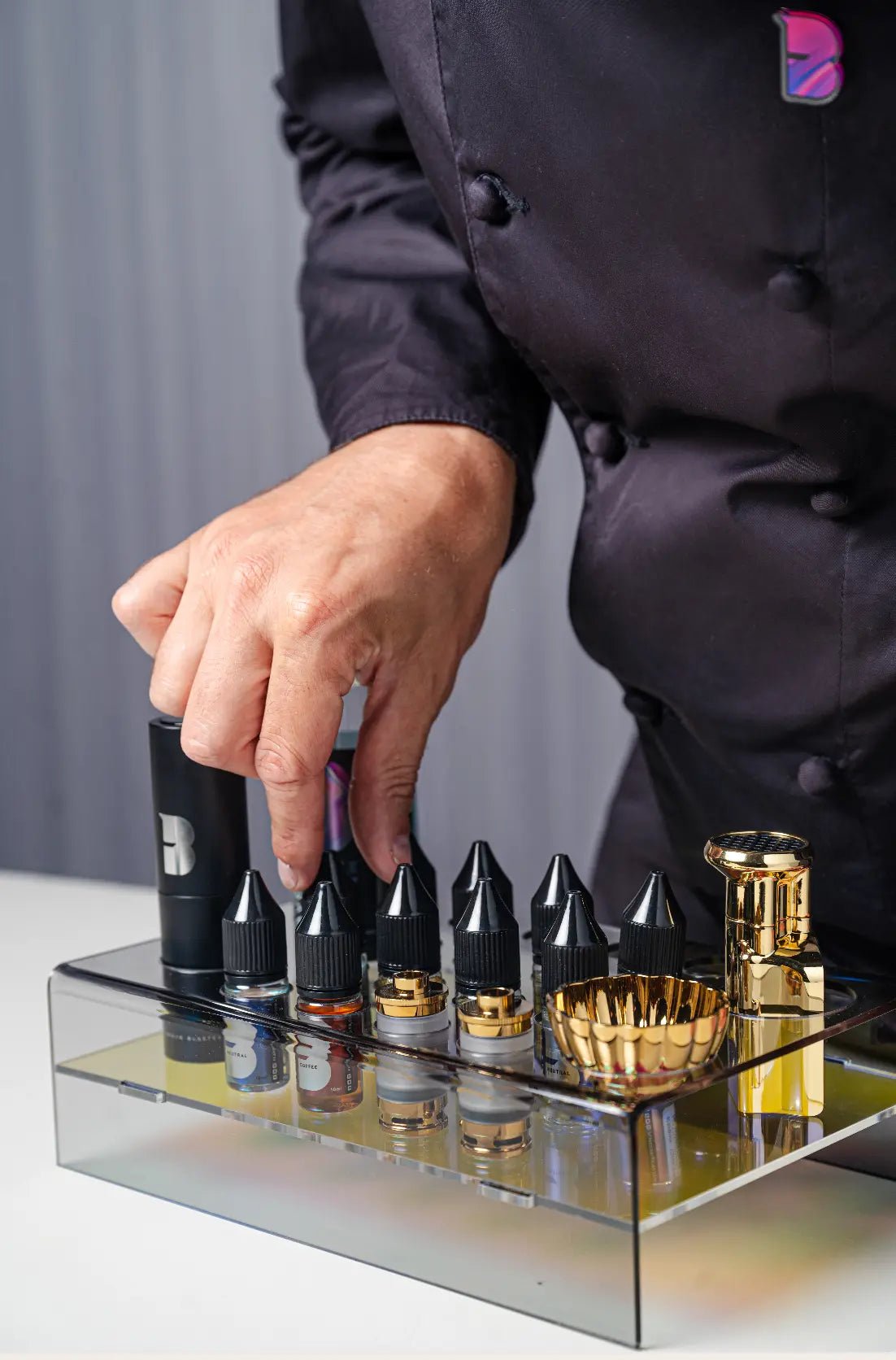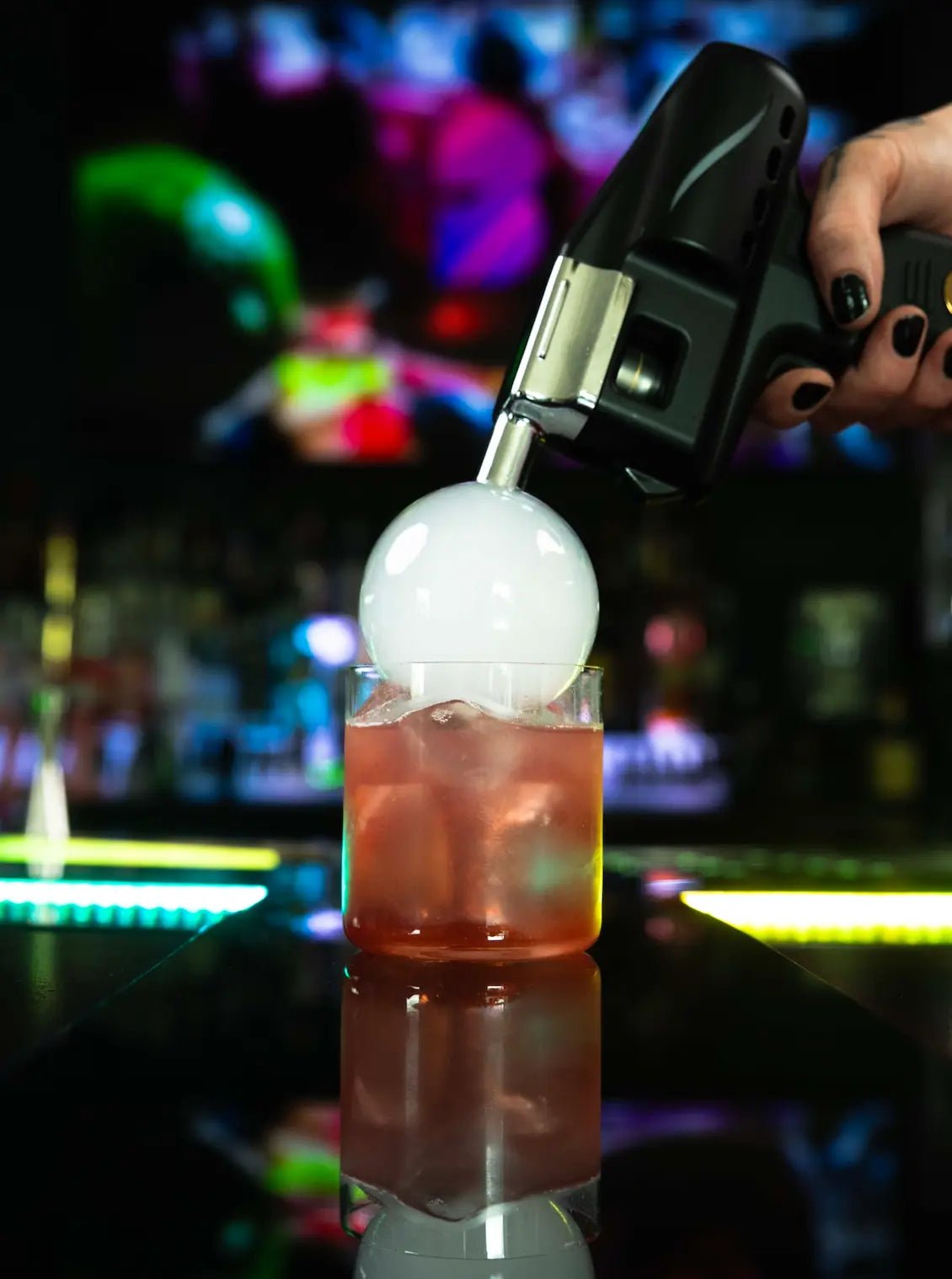Nutmeg, the History Behind the Grated Garnish
Why is nutmeg used in so many classic cocktails?
Nutmeg is a spice made from the seed of a peach-like fruit of an evergreen tree called Myristica Fragrans, native to Indonesia. This fruit creates two spices, nutmeg from the seed and mace from the seed husk. Nutmeg is used grated or ground in a powder and has become common as a seasoning in both savoury and sweet foods. It has a distinctive flavour but isn't overpowering with warm woody tones and a delicate sweetness.
Where Does Nutmeg Come From?
Nutmeg has been used for centuries in the West after explorers bought it back from the spice islands of Indonesia. In Indonesian cuisine, nutmeg is used to spice soups and stock for meat dishes, and it's one of the many spices that make the Indian dish garam masala. In Europe, nutmeg is paired with potatoes, used in soups, sauces like béchamel, meat rubs and stuffing, and baked goods and puddings both as a seasoning and in condiments. It also has a long history as a garnish for cocktails. Drinks like flips, eggnog, mulled wines, punches, and Tiki drinks like the painkiller all call for a dusting of nutmeg.
In 1511, Alfonso de Albuquerque conquered Malacca, the heart of Asian trade, on behalf of the King of Portugal and took home one shipment of nutmeg that began a wild chase for control of the spice trade among the kingdoms of Europe. There was a 60,000 per cent mark upon the cost because nutmeg was so rare and desirable: it was worth more than gold. So many ships were sent out by royal decree, looking for accessible routes to the source. Christopher Columbus, for example, was looking for the islands in the Banda Sea when he first landed in the Caribbean. There was a bloody bun fight for control of the island network for the next hundred years, mainly between the Brits and the Dutch. The Dutch East India Company and British East India Company were formed. The Dutch took most of the Banda islands, and during their colonisation, they streamlined the nutmeg plantation system but also tortured and killed anyone who tried to stop them. British invaded some islands temporarily, but they didn't stay for long. Instead, they uprooted and transplanted trees to Sri Lanka, Penang, and Singapore and as far away as Zanzibar and Granada. In response to the Dutch breaking a political peace treaty, the Brits took Dutch colonies in the New World and Africa, notably New Amsterdam (Manhatten), to bargain for shared control.
The Dutch gave those outposts away in exchange for complete control of the Bandas, not knowing that the Brits were successfully growing nutmeg elsewhere and retained a political presence there until World War Two.
Why Was Nutmeg so Highly Prized?
The English word nutmeg comes from their Latin 'nux' meaning nut and 'muscat' demeaning musky, hinting at the strong notes of allspice, orange zest and aniseed.
These flavours and its exclusivity and expense made nutmeg synonymous with feasts and festivities, which is how it became one of our Christmas spices. But nutmeg was not only prized for its flavour and fragrance. No, it was fashionable among the wealthy as a hallucinogenic. Yes, there are claims that nutmeg was intoxicating enough to make you feel like you were floating on air. In fact, well to do gentlemen wore beautiful nutmeg graters or grinders as jewellery to be ready for any social occasion.
How to get the most of Nutmeg in Your Bar?
You can buy nutmeg either powdered or as a whole seed that you can freshly grate. The ground nutmeg loses its flavour more quickly, but the whole seed will retain a lovely freshness if appropriately stored in a sealed jar. The different growing regions produce variations in flavour, with some more savoury and others more floral. It's traditionally used in cream or egg-based drinks, especially as a garnish because it helps mask that wet dog smell of dairy. However, it also draws out the delicate notes from spirits like orris from gin or herbs from vermouths. But be careful if you're making nutmeg syrups or infusions because, in large portions (2 teaspoons or more), it can result in euphoria, seizures, or palpitations around 12 hours after ingestion. The "nutmeg high" has been likened to a bad hangover and can last up to two days.
Nutmeg essential oils are easy to extract, and can be used as a totally natural flavouring. Our new aromatic - nutmeg flavour uses these essential oils to retain the freshness and subtle fragrant qualities of this subtle spice.
Classic Nutmeg Cocktails
Sangaree
- 45ml Cognac
- 22.5ml Tawny Port
- 5ml 2:1 Sugar syrup
Stir all ingredients over ice and pour into a pre-chilled martini glass and grate fresh nutmeg over the top. Use in a rocks glass and lid and infuse some nutmeg aroma.
Tom & Jerry
- 2 egg whites
- 2 egg yolks
- 30g White caster sugar
- 15ml Overproof Navy rum
- 2.5 ml Cinnamon powder
- 2.5 ml Clove
- 4ml Fresh grated nutmeg
- 45ml Cognac
- 15ml Barrel-aged rum
- Top with boiling water.
Whisk the yolks and add the sugar, rum and spices. In a separate bowl, beat the eggs whites into peaks. Fold the yolk mixture into the egg whites. Pour the golden rum and cognac into a latte glass and top with the egg mixture. Garnish with freshly grated nutmeg.
Painkiller
- 45ml Navy Rum
- 90ml Fresh pineapple juice
- 22.5ml Fresh orange juice
- 15ml Coconut cream
Shake all ingredients together over ice, strain into an ice-filled tall glass, grate fresh nutmeg over the top, and then garnish with a chunk of fresh pineapple.
Also Read - How to intensify the flavours in your cocktails
